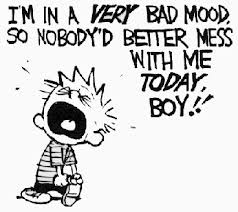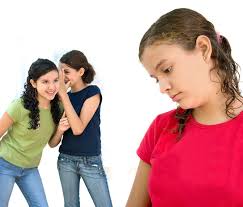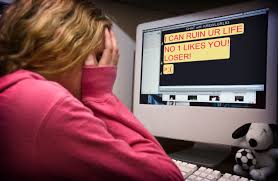|
|
June 17, 2015
This is Part 3 of my Q&A blog series in which I alternately answer parenting questions and teen questions. If you’re just joining us, you can check out Part 1 “How do I keep my child away from a bad friend?” and Part 2 “Who was that guy my mom was with?”
 You’ve been warned! Today’s Question: I get that nobody is happy all the time. I’m not! But when my 9 year old son is in a bad mood, it’s not fun for anyone. I’ll admit, I’m not always very patient with him when he’s like that. Obviously that doesn’t help. So, what do I do when my kid is in a bad mood?
Bad moods are kind of like stinky cheese. You open the wrapper and they permeate everything and everyone. The unhelpful thing that parents often do is try to get a child out of a bad mood by distraction or becoming the court jester. When parents rush in believing it’s always their job to turn that frown into a smile then they’re in for a lot of trouble and they’re not helping their children learn to deal with the ups and downs of life.
Life can be really frustrating. Life can be disappointing. And, if your child expects that everyone will be treated equally, then life is also unfair! OK, so we’re all agreed that crap happens and so do bad moods. Kids need us to teach them essential life skills: resilience and GRIT, which is all about being able to rub up against the challenging aspects of life without wilting and giving up. GRIT also involves the ability to figure out what’s your next best move in the current situation.
When a bad mood strikes there isn’t really anything that a parent has to do. That may be a newsflash for some. It’s only when the bad mood is accompanied by unacceptable behavior – rudeness, unkindness, destruction, etc. that parents need to intervene. Otherwise, how will our children learn to be good people?
I was talking to my friend, Dr. Deborah Gilboa (AskDrG.com) about her most recent book, Get the Behavior You Want Without Being the Parent You Hate. One of the points she made that jumped out at me was about how we need to teach children that their feelings are less important than their behavior. She’s spot on. As caring parents and educators, we have focused too much on children’s emotions. (“What are you feeling!?”) When that becomes the end-all and be-all, kids assume that their emotions are more important than what they do or say. What little Max feels is not an acceptable excuse for everything he may do. The clear message for Max: Feel whatever you’re feeling. If you’re in a bad mood, be in a bad mood. But you do not have the right to intentionally be cruel or in any way disrespectful to anyone (online or off).
Instead of providing kids with excuses for bad behavior (“She just did it because she was upset.” “He only said that because he’s jealous.”) let’s do a better job teaching them how to deal with unsettling emotions. Let’s also help them understand that sometimes, even when we are disappointed, hurt, or frustrated, we can calm down and express ourselves without hurting anyone. These life skills will help all of us behave in ways that make us feel good about who we are.
Got a parenting question about raising tweens and teens? Just ask.

June 10, 2015
As part of my ongoing series of Q&A from my email, today I’m bringing you a question from a 7th grader. Even if the situation he’s in is not something your child is dealing with, it’s helpful to be reminded how sensitive kids are. They notice everything and when they’re too scared to let us in on their worries, they suffer in silence. On the other hand, when we sharpen our radar we’re better able to notice when they might be upset. That’s when we need to step up and encourage them to open up.
 I don’t know who to talk to about this. Today’s question: I’m 12 and my parents are divorced. Me and my little sister live with my mom. Today when I got home I saw this guy with his arm around my mom. I felt annoyed. I didn’t know what to say. When they left together my mom said she was going to work. I felt like a nobody. I wont tell her I know but, I wanna feel better.
–Lost and Confused
Dear Lost and Confused,
This is a tough one. It can be really awkward when you see one of your parents with someone else. I don’t know how long your parents have been divorced or if either Mom or Dad has dated before, but this is probably something you are going to have to get used to. Your Mom loves you and your sister very much. That hasn’t changed. But she is not married and she has the right to date. Please reconsider talking to her about it. It would be a smart move on your part. You might say something like this: “Mom, the other day when I saw you with that guy, I felt uncomfortable. “ Then ask her whatever is on your mind. For example, “Who is he?” “How long do you know him?” “Where did you meet him?” “Is he your boyfriend?” “Are you going to marry him?” Whatever you want to ask… ASK her. You will feel better knowing what’s going on. That is the best way to stop feeling “like a nobody.” You are NOT a “nobody” you are your mom’s child. And as a 12 year old, you have the right to know certain things. So… ask.
You can do this. Good luck! And let me know how it goes.
In friendship,
Terra

June 6, 2015
For the next few months my blog will focus on answering your parenting questions about raising tweens and teens as well as letting you in on some of the letters I get from tweens and teens. So if you’ve got something on your mind that you could use help with, send it to AskAnnie. (Of course it will be posted without any names, so no worries there.)
Today’s question: How do I keep my 11 yr old away from a bad friend?
 And you still think she’s your friend?! First you’ve got to realize that your definition of a “bad” friend might not be the same as your child’s. In fact, if your child has a history with this friend and is very attached, trying to pry her away will most likely land you smack in the middle of an ugly, pointless power struggle in which you will become the bad guy.
The most effective way to handle something like this is to help your child develop standards for what constitutes a good friend vs. the other kind. You can do it by making observations about what you see. For example, you might say, in a neutral voice, “You know, honey, I’ve noticed, when you come home from Jack’s house you’re usually in a bad mood. Sometimes you take it out on your sister. Sometimes you’re rude to me. I’m wondering what’s going on here?” Right then and there, you create a safe environment for your child to think about what you’ve observed and to let you in on where this chronic “bad mood after being with Jack” might be coming from.
Another approach is to share what you see when the two kids are together. You might say something like this, “I notice when Jack comes over, he seems to be bossing you around. Sometimes I hear bad language and I’m not happy with that. It seems like you two spend more time fighting than getting along. What’s up with that?” After an observational statement like this, simply close your mouth and listen to what your son or daughter has to say.
These techniques let you inside the mind of your child more effectively than provocative statements. (“You don’t actually like that awful boy, do you?!!”) Loaded questions like that don’t go over well with tweens and teens.
If you have good reasons, you are also perfectly within your rights to say, “Your friend is no longer welcome in our home and here’s why…” That conversation can be an eye-opener for your child and provide lots of food for thought.
Bottom line, the best way to influence tweens and teens in the direction of more positive friendships is to make neutral observations so the conversation can open up rather than shut down. That’s how to infuse your child with essential information about what it means to be a real friend.
I hope this helps. And until next time, happy parenting.

May 13, 2015
by Amy Williams
Amy Williams is a journalist based in Southern California. Mom of two, she uses her parenting experience to help other parents raise their children to be the best that they can be. You can follow Amy on Twitter and Facebook.
 Why don’t they leave me alone?! According to Chinese tradition 2015 is the year of the Sheep. I hope it’s better than last year, which I called The Year Of The Bully.
At the start of 6th grade our son had a physical altercation at football practice. The harassment continued at school, extracurricular events, and on Social Media. We didn’t know because our son didn’t let us in on it, a typical response from tweens and teens who are being targeted.
He’d come home from practice upset, shirt torn, and occasionally with missing his cleats. At first we chalked it up to the rough nature of the game and forgetfulness. But other things indicated something was wrong. Some of the puzzle pieces we observed:
- Our son frequently complained about stomach aches and found it difficult to sleep at night.
- He was visibly upset and often would erupt in anger toward his younger sibling for no reason.
- We received emails from his teacher’s about his behavior and falling grades.
- He didn’t ask for friends to come over or to meet up at the movies.
- He suddenly stopped wanting to play on his tablet, the family computer, or use his online account with his gaming system.
- He would cry and refuse to go to Scouting functions or Church activities.
Looking back I can’t believe how blind we were. He was clearly exhibiting signs of being bullied at school and online.
One day I picked him up after football practice. Waiting by the field, I watched our son interact with his teammates. He walked barefoot to the van, desperately trying to hold back his tears. Finally, he let it all out. We felt terrible that we had failed to keep our child safe, but now, we could help and we got right to it.
Our first action was to alert his teachers, bus drivers, and school administrators. It was comforting to know there were extra eyes and ears to monitor the situation. I had a wonderful conversation with the principal who changed the seating chart for the bus ride, changed how the children lined up for lunch, and added a few more sessions about bullying into their counseling rotation. She was trying to educate students on the differences between positive ways to interact vs. aggressive behaviors.
Because 1 in 3 children are victims of cyberbullying and over half don’t report it to an adult, we began an open dialogue with our son. To protect himself, he changed his profile and names on Social Media and gaming sites. During the beginning of our journey, we opened and read all messages together and limited online contacts to friends and family only. We began to actively monitor his Internet and cell phone activity, using a convenient app that allows us to view all his accounts in one place. We also started interacting online with our son so the kids who were targeting him couldn’t miss our presence. Finally, we made a rule that digital technology would only be used in our common living area, no more kids online in isolation (exactly what harassers hope for.)
With a little effort and a lot of emotional coaching, our son is doing very well. He enjoys school again and now happily interacts with his friends online. His former harassers have improved their behavior, too. They probably didn’t understand they were crossing a line. All in all, with this situation behind us, I’d like to believe this experience will foster my son’s empathy and emotional fortitude to handle adversity.
Goodbye, Year of the Bully. Hello, Year of the Sheep. May it be lucky and prosperous for our family and yours.
 — Older Posts »
| |















